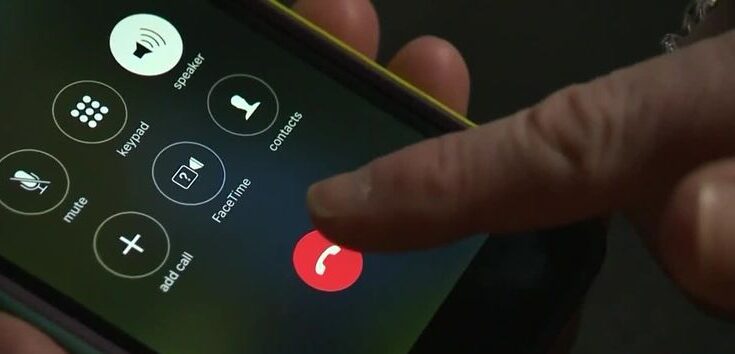Warning: 0120005441, 8008087000, 0120985480, 5031551046, 8009190347, 120999443, 222117258, 120252000, 0120-925-527, 120925318, 120998151, 570005040, 0120988315, 0120991013, 0120988315, 0120989393, 0120633439, 08005003225, 332659022, 120170001, 5088812828, 669104115, 5031599953, 120996085, 120979555, 8002229417, 922615616, 364358073, 8001009127, 5030336342, 120526888, 120917245, 364358073, 0120-252-000, 120868014, 120013175, 671669891, 120397663, 0570 005 040, 0120 247 218, 8007775926, 120426288, 050 3155 1046, 5053704031, 5031213937, 120954484, 0120 999 443, 120952650, 06 6910 4115 and 120961600 in in Japan.
In today’s interconnected world, we rely heavily on our smartphones for communication. While phone calls keep us connected, they can also expose us to potential risks, especially when we receive calls from unknown numbers. This article aims to shed light on the issue of phone calls from specific numbers, namely 0120005441, 0120991013, 8008087000, 5031551046, 8009190347, 0120985480, and 120999443 in Japan. We’ll explore the reasons behind the increasing concern surrounding these numbers and offer practical tips on how to handle such calls with caution. Additionally, we’ll provide valuable insights based on real experiences and credible sources, empowering you to protect yourself from potential scams and fraudulent activities.
Beware of Phone Calls from 0120005441, 0120991013, 8008087000, 5031551046, 8009190347, 0120985480 and 120999443 in Japan
Receiving phone calls from unfamiliar numbers can be unsettling, especially when they repeatedly originate from certain suspicious digits like 0120005441, 0120991013, 8008087000, 5031551046, 8009190347, 0120985480, and 120999443 in Japan. Many individuals have reported such calls, raising concerns about potential scams, identity theft, and fraudulent schemes. If you have encountered calls from these numbers or similar ones, it’s essential to be cautious and follow the best practices to protect yourself from any potential threats.
How to Identify Suspicious Phone Calls?
1. Analyze the Caller ID
When you receive a call, the first step is to check the caller ID. Scammers often use spoofing technology to disguise their actual phone numbers. If you notice a pattern of calls coming from the same set of numbers, like 0120005441, 0120991013, 8008087000, 5031551046, 8009190347, 0120985480, and 120999443, exercise extra caution.
2. Look for Unusual Behavior
Be wary of callers who exhibit unusual behavior, such as pressuring you to provide personal information, financial details, or passwords. Legitimate organizations would never request sensitive data over the phone.
3. Verify the Caller’s Identity
If the caller claims to represent a company or organization, ask for verification. Legitimate entities won’t hesitate to provide contact information for you to call them back.
4. Listen to the Call Quality
Scammers might be calling from international locations, leading to call quality issues like delays or echoes. Poor audio quality can be a red flag.
5. Trust Your Instincts
If something feels off about the call, trust your gut instinct. Hang up and report the number if you suspect any fraudulent activity.
Common Scams Associated with These Numbers
1. Phishing Scams
Phishing scams involve tricking individuals into divulging sensitive information, such as passwords or financial details. Scammers often impersonate reputable organizations or government agencies to gain trust and deceive their targets.
2. Robocalls and Automated Messages
Automated calls from suspicious numbers might deliver pre-recorded messages that prompt recipients to take certain actions, such as pressing numbers or providing personal information.
3. Fake Prize or Lottery Wins
Scammers may claim that the recipient has won a prize or lottery but needs to pay a fee to claim it. Remember, legitimate contests won’t ask winners to pay anything to receive their rewards.
4. Tech Support Scams
In tech support scams, callers pretend to be technical support representatives from well-known companies, urging individuals to grant them remote access to their devices and then extracting sensitive data or installing malicious software.
5. Government Impersonation Scams
Callers may pose as government officials, threatening legal consequences unless immediate payment is made for alleged dues or taxes. Government agencies usually communicate official matters through written correspondence.
How to Protect Yourself from Phone Scams?
1. Register on Do Not Call Lists
Consider registering your phone number on official Do Not Call lists to reduce unwanted calls from telemarketers and scammers.
2. Use Call Blocking Apps
Utilize call blocking apps that can automatically identify and block spam or suspicious calls from known numbers.
3. Be Cautious with Personal Information
Avoid sharing personal information over the phone, especially if the caller’s identity is uncertain.
4. Stay Informed
Keep yourself updated about common phone scams and fraudulent activities to recognize potential threats.
5. Report Suspicious Calls
Report any suspicious calls or scams to relevant authorities or consumer protection agencies.
FAQs
1. Are these specific numbers confirmed to be associated with scams?
While certain numbers have been reported frequently in relation to scams, it’s essential to remember that scammers can change their tactics and phone numbers regularly.
2. Should I answer calls from unfamiliar numbers?
It’s best to exercise caution when answering calls from unknown numbers. If you’re unsure, let the call go to voicemail.
3. Can scammers steal my personal information through phone calls?
Yes, scammers can use various techniques to extract personal information during phone calls. Be vigilant and avoid providing sensitive details.
4. What should I do if I suspect a phone call is a scam?
Hang up immediately, block the number if possible, and report the incident to relevant authorities.
5. Can I take legal action against scammers?
Legal actions against scammers can be challenging, especially if they are operating from different countries. However, reporting incidents can help raise awareness and protect others.
6. Are these scams specific to Japan?
While the numbers mentioned originate from Japan, phone scams can occur worldwide. It’s essential to stay informed and cautious, regardless of your location.
Conclusion
Beware of phone calls from numbers like 0120005441, 0120991013, 8008087000, 5031551046, 8009190347, 0120985480, and 120999443 in Japan. Scammers and fraudsters can be persistent in their attempts to deceive and steal personal information. By staying informed, following best practices, and trusting your instincts, you can safeguard yourself against potential scams. Remember to report suspicious calls and share your experiences to protect others in the community.




